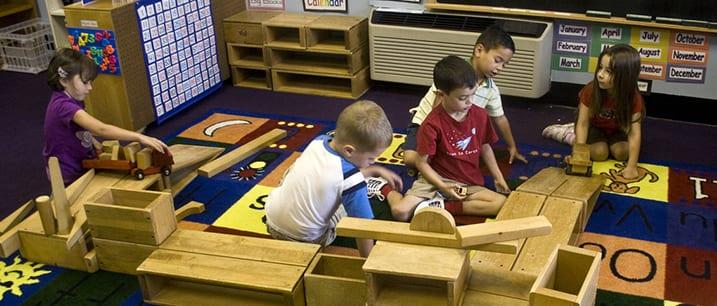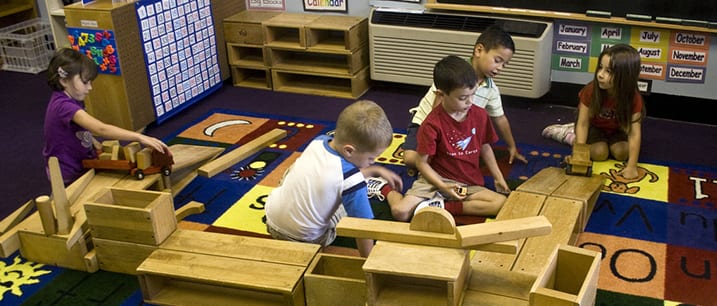When it comes to activities for kids that promote learning, “play” isn’t usually even part of the discussion. Learn why it should be, in this guest post by Fort Washington, PA teacher Sarah M...
As I walk into my Transitional Kindergarten classroom, I see shelves full of toys. There are blocks, puzzles, little toy animals, snap cubes, K’NEX, and many more interesting bins of playthings and activities for kids. As a suburban child, I would have loved to come into that room, pull a toy off the shelf, and create games or buildings. I was able to have fun independently. But when my students enter the room today, they do not engage with any of the toys. They run around the room waiting for me to entertain them.
Play Today
According to pediatric expert Dr. Lynne Kenney, play is defined as “Activities that are freely chosen and self-directed arising from intrinsic motivation.” By this definition, any scheduled activity or structured iPad game is not play. Play is creating, building, thinking, solving problems, and doing activities independently.
Play helps children to “become…successful social animal[s]” (Kenney). My goal as a teacher is to help children become active and social members of society, so I want to encourage them to play themselves for the purpose of learning. Parents also have a huge role in this.
How to Teach Children to Play
1. Make time in the day for play. If adults encourage play and show children how to do it, children will become motivated to try it by themselves.
3. Sit down with your child and offer to play with him or her. Build a house together out of blocks, play board games, play make-believe games, or do puzzles. These are all great activities for kids that promote both being social and learning.
4. Find the types of toys that interest your child. Encourage him or her to pull out toys on his or her own and to be responsible for putting them away.
5. If you don’t have time in the day to help your children develop the social/play skills that they need, consider hiring a tutor to help him or her learn these crucial skills!
Activities for kids that incorporate play are important for development. Follow the tips above to get your own child interested in play. When children play, they begin to create, invent, and learn!
 Sarah M. teaches in Fort Washington, PA. She graduated from Penn State University in 2013, and is a certified Elementary K-6 teacher. Learn more about Sarah here!
Sarah M. teaches in Fort Washington, PA. She graduated from Penn State University in 2013, and is a certified Elementary K-6 teacher. Learn more about Sarah here!
 Photo by woodleywonderworks
Photo by woodleywonderworks
Suzy S.

